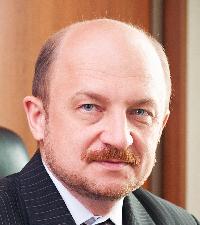| Pages in topic: < [1 2] | Russia/Ukraine Substitution in a modern Ukrainian Translation of Nicolas Gogol Thread poster: Nico Rhodionoff
|
|---|
Heinrich Pesch 
Finland
Local time: 07:57
Member (2003)
Finnish to German
+ ...
FOH wrote:
Dear Roman, thank you for your reply, understanding and interesting ideas!
When I write about translation of Goethe into modern Hochdeutsch in our discussion, I mean – Taras Bulba must be translated not into modern Ukrainian language, but into Ukrainian language of Gogols’ time – it will be reconstruction of what Nikolas Gogol would write using Ukrainian language (you may agree Ukrainian language of Gogols’ time differs from modern Ukrainian in the same way Pushkins’ Russian language differs from modern Russian (Pelevins’ Russian for example).
Take it easy
FOH
Translation must always be done into the contemporary language of the translator if at all. Otherwise Dante would have to be translated into medieval German and nobody could understand the translation (and no-one would be able to translate DAnte into medieval German). The translation should be readable for all young people of the language without unnecessary struggle). That's why the classics are always translated anew, because translations become obsolete with time.
I read Taras Bulba more than 40 years ago and found it rather antisemitic in its spirit. Gogol has written better stuff.
Lets take another example: If some ancient Austrian author would have referred to the area of Bohemia as "North-western Austria" or "Germany's eastern province" I have no doubt that a Chekh translator has every right to substitute these phrases with a more suitable term, which is understandable for modern Chekh readers.
| | | | Nico Rhodionoff
India
Local time: 10:27
Russian to English
+ ...
TOPIC STARTER | linquistic definition of Russia/Russian | Apr 17, 2008 |
My Ukrainian colleague Roman wrote: “Russia and Russian are not that closely related, that is, Russian is not a derivative from Russia -- not in the context of the 15th century”. There are few remarks on this subject:
1. Thinking about difference between “Russky” and “Rossiysky” can anybody give a reasonable translation of both terms into non-Slavic languages, so the border between the “Great, Lesser and White Russia” and the "actual" Russia will turn to be understandable... See more My Ukrainian colleague Roman wrote: “Russia and Russian are not that closely related, that is, Russian is not a derivative from Russia -- not in the context of the 15th century”. There are few remarks on this subject:
1. Thinking about difference between “Russky” and “Rossiysky” can anybody give a reasonable translation of both terms into non-Slavic languages, so the border between the “Great, Lesser and White Russia” and the "actual" Russia will turn to be understandable for a regular western reader? (as well as an ordinary Russian reader)
2. If “Russia and Russian are not that closely related, that is, Russian is not a derivative from Russia” can something like that be applicable to Germany and German, England and English, France and French etc. etc.? (Again – nothing nationalist – just terminology!)
3. I have received yesterday night a message from Roman – he has found the translation of Taras Bulba into Ukrainian we discuss in internet and wrote to me about this translation. Roman, why wouldn’t you share some of your feelings with colleagues? ▲ Collapse
| | | | Nico Rhodionoff
India
Local time: 10:27
Russian to English
+ ...
TOPIC STARTER | Werter Heinrich! | Apr 17, 2008 |
Heinrich Pesch wrote:
Translation must always be done into the contemporary language of the translator if at all. Otherwise Dante would have to be translated into medieval German and nobody could understand the translation (and no-one would be able to translate DAnte into medieval German). The translation should be readable for all young people of the language without unnecessary struggle). That's why the classics are always translated anew, because translations become obsolete with time.
Lets take another example: If some ancient Austrian author would have referred to the area of Bohemia as "North-western Austria" or "Germany's eastern province" I have no doubt that a Chekh translator has every right to substitute these phrases with a more suitable term, which is understandable for modern Chekh readers.
Thank you for your post and interesting samples about Austrian/German/ Czech analogy – it somehow proves my eariler point “with revision of national history of Ukraina, Georgia, India, Vietnam etc. etc. we will have to change our attitude to understanding and translation of such common terms as country names etc…”
As per your remark “Translation must always be done into the contemporary language of the translator if at all” – the funny thing is that every Ukrainian knows Taras Bulba as it was written by Nicolas Gogol, and original Gogols’ text is much stronger comparing to its modern Ukrainian translation (ask Roman Bulkiewicz), than is why I say if such translation has to be done (where I believe no modern translator will compete with Gogols’ original and every Ukrainian knows Taras Bulba in original version), the only interesting point will be an attempt to reconstruct the literary Ukrainian language of Gogols’ time.
| | | | Nico Rhodionoff
India
Local time: 10:27
Russian to English
+ ...
TOPIC STARTER | "The Curious Case of the Sex Changes" in context fo our discussion | Apr 17, 2008 |
There is another discussion at http://www.proz.com (The Curious Case of the Sex Changes) where most of participants agree, that substitution of grammatical and biological genders by translation has nothing to do with professional work, and the contract “… to translate the novel into Galician was cancelled because she refused to reinforce sexist stereotypes”.
Why translator-community agrees in ge... See more There is another discussion at http://www.proz.com (The Curious Case of the Sex Changes) where most of participants agree, that substitution of grammatical and biological genders by translation has nothing to do with professional work, and the contract “… to translate the novel into Galician was cancelled because she refused to reinforce sexist stereotypes”.
Why translator-community agrees in general, that it is not a very professional (as well as not a clear from ethical point of view) move to substitute “he” with “she” and in the same time feels all right to substitute Russia with Ukraina?  ) ) ▲ Collapse
| | |
|
|
|
3. I have received yesterday night a message from Roman – he has found the translation of Taras Bulba into Ukrainian we discuss in internet and wrote to me about this translation. Roman, why wouldn’t you share some of your feelings with colleagues?
I haven't followed this thread, and I hardly can add much to what I've already said here.
As I said above, I do not agree that such subsitutions should or may be made.
Also, the translation itself did not impress me, though I only took a brief glance. So? If you want to discuss this particular translation from the linguistic point of view, please go ahead (again, I had suggested it in my very first post in this thread). This may be an interesting discussion, but I will hardly have time and desire to participate.
The discussion about what someone should or should not translate or publish looks pointless, if not to say absurd, to me. Such discussions may be suitable for what Literaturka has degraded to, but I'd rather keep off there, thank you very much.
I note that you keep referring to some "modern" translation or translators. Let me repeat again that the translation in question is about a century old, and it has been re-published multiple times since then, I assume during the Soviet times (I have a reference at least to one such publication - in 1927).
As to your questions re Russia/Russian issue, I am sorry, but I seem to be missing your point again. The things are simple and well-known to every Russian speaker with basic knowledge of history. There are 2 proper names -- Rus' and Rossiya -- that are very distinct in terms of geography, history, culture etc. In Russian and in English the adjectives derived from these two names are homonymous - Russkiy and Russian, respectively. In Ukrainian, they are not -- Rus'kiy (from Rus') and Rosiyskiy (from Russia).
Do you really have a different opinion on this matter? Is there really any room for "opinions" there?
What do France, Germany (or French, German languages) have to do with these simple facts?
Speaking of Taras Bulba, in the 15th century there was Rus' but there was no Russia (neither Great nor Lesser -- there was Muskovia instead). Accordingly, the words "Russkaya zemlya" (Russian land) that Gogol's cossacks use multiple times, should have been properly translated into Ukrainian as "Rus'ka zemlya" (from Rus', not Russia). I can imagine it could be a delicate matter for some at the turn of the 19/20th centuries, when Sadovsky wrote his translation, but for the modern Ukrainian reader this would not lead to any confusion or association with Russia (that may seem "undesirable" to someone). That's why I said it was stupid to substitute "Russian land" with "Cossack land" (not "Ukrainian", btw). Not just incorrect - but stupid.
Now that I've seen the translation and confirmed that such substitutions have indeed been made, I have no problems saying it again: it is stupid.
At this point let me excuse myself from further participation in this thread.
| | | | Nico Rhodionoff
India
Local time: 10:27
Russian to English
+ ...
TOPIC STARTER | "overheating" | Apr 17, 2008 |
Dear Roman,
I very appreciate your postss, attention and ideas, thank you for spending your time!
I feel sorry the discussion brought us to a obvious “overheating” – may be we touched some subjects our kids only will be able to discuss in a cool way.
I whish to you all the best and hope to enjoy your collaboration at http://www.proz.com
With best regards and take it easy
FOH
| | | | | Pages in topic: < [1 2] | To report site rules violations or get help, contact a site moderator: You can also contact site staff by submitting a support request » Russia/Ukraine Substitution in a modern Ukrainian Translation of Nicolas Gogol | CafeTran Espresso | You've never met a CAT tool this clever!
Translate faster & easier, using a sophisticated CAT tool built by a translator / developer.
Accept jobs from clients who use Trados, MemoQ, Wordfast & major CAT tools.
Download and start using CafeTran Espresso -- for free
Buy now! » |
| | Wordfast Pro | Translation Memory Software for Any Platform
Exclusive discount for ProZ.com users!
Save over 13% when purchasing Wordfast Pro through ProZ.com. Wordfast is the world's #1 provider of platform-independent Translation Memory software. Consistently ranked the most user-friendly and highest value
Buy now! » |
|
| | | | X Sign in to your ProZ.com account... | | | | | |






